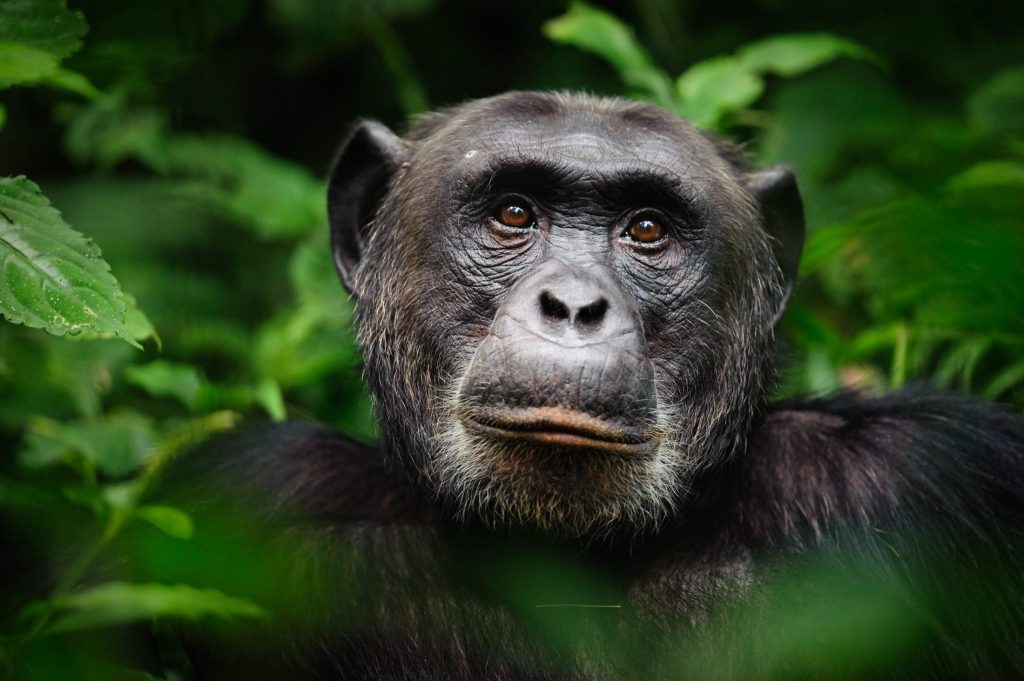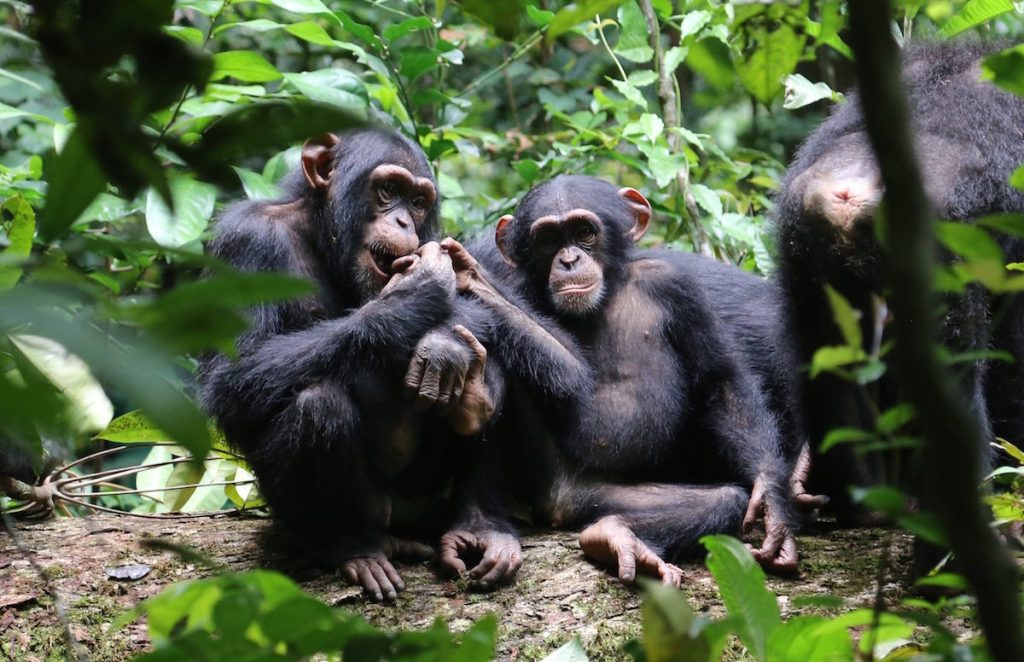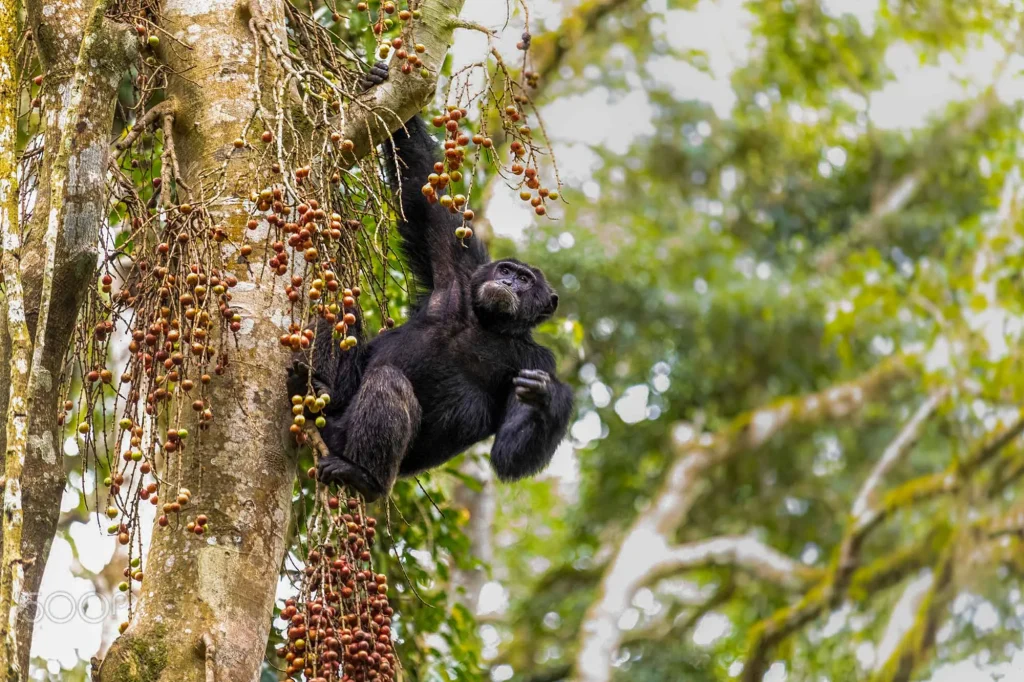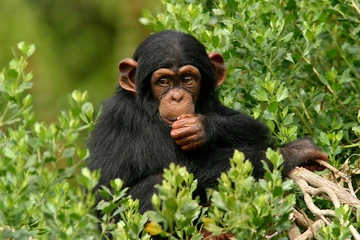
The common chimpanzee (Pan troglodytes) is one of the most intelligent and socially complex animals on the planet. Chimpanzees as the closest living relatives to humans share about 98% of our DNA, and thus, provide us with a rare insight in to the evolutionary connection between humans and the animal world. Chimpanzees with their impressive set of behaviors and advanced social systems as well as their emotional range are captivating creatures that have been studied by scientists and other individuals interested in the natural world throughout the course of decades.
In this article, we will explore 5 fascinating facts about the common chimpanzee, delving into their incredible intelligence, social dynamics, physical traits, and behaviors. Learning about such an amazing animal will allow us not only to explore the evolutionary background of humans and other primates but also understand how chimps are coping in both the wild and in captivity.
1. Chimpanzees Are Exceptionally Intelligent

One of the most remarkable facts about the common chimpanzee is their extraordinary intelligence. Chimpanzees are highly intelligent primates who can use tools, solve complicated problems, and even acquire new behaviors via observing and imitating them. Their intelligence is usually set in parallel with human intelligence, and there have been experiments demonstrating that they are capable of assignments that involve memory, reasoning and cause and effect. Chimps are identified to use tools in the wild and this was previously believed as being an exclusive human behavior. They also fish for termites using sticks and crack nuts using rocks and make leaves as sponges to hold water.
Such activities call upon knowing what the objects they use are like as well as what it is they are attempting to do. Another fascinating thing displayed by chimpanzees is their innovation when faced with a new problem. Indeed, chimpanzees in captivity have been known to alter preexisting tools or to develop new tools in order to resolve problems that had not been previously experienced by their wild counterparts. In addition to using tools, chimpanzees are also good problem solvers. They have demonstrated that they can solve puzzles, recall patterns and make strategic decisions in laboratory experiments.
They possess an outstanding level of working memory and certain reports indicate that the chimps can recall sequences of numbers beyond the time humans can. That sophistication of chimpanzees does not restrict to the use of tools, problem-solving capacity. They are also good communicators. Though chimpanzees lack a complete language system like those in human beings, they will extensively use vocalizations, facial expressions and body language to communicate with others. As an example, chimpanzees communicate with one another about the food availability or the danger by emitting certain cries, as well as they employ gestures and expressions to demonstrate their mood, say anger, happy or loving.
2. Chimpanzees Have Complex Social Structures

Another fascinating aspect of the common chimpanzee is their complex social structure. Chimpanzees are very sociable creatures who reside in communities, or groups, and generally contain between 20 and 150 individuals. Chimpanzees in such societies are highly social; they develop complex relationships and reveal a high variety of social behaviors, leading to cooperation as well as competition. Generally, the structure of societies involve the chimpanzees having some form of dominance hierarchy with everyone having a rank within the society. The leader of the group, the highest ranked, is the alpha male at the top of the hierarchy.
It is common that the alpha male ascends the pack due to physical strength, association with fellow males, and his capability to dominate competitors. Nevertheless, the alpha male is not privileged with a station because he is under perpetual challenge and since he is obligated to maintain his position by expressing aggression and power. Other than the domination hierarchy, social bonds also feature chimpanzee grouping. These bonds are established by grooming, playing and cooperating and serve to uphold social stability in the group. Grooming is especially valuable in the society of chimpanzees, where it is used not only to clean one another out, but also as a tool of constructing and strengthening social bonds. Grooming is an important aspect of chimpanzee social life that aids in alleviating tensions and building trust between the members.
Chimpanzees are also cooperative to an extent; chimpanzees hunt collectively and share food. Although there are solitary foraging chimpanzees, others hunt in bands and collaborate to kill an animal like a monkey or duiker. Successful hunters might also share food with the rest of the group, a behavior that strengthens social relationships and guarantees that everyone in the group can get benefits out of the whole collective. Strangely, chimpanzee societies are not entirely male dominated. Women also play significant roles in the group and they are able to establish their own alliances. Especially female chimpanzees tend to participate in coalitions with fellow females, and these alliances may be essential in acquiring resources; e.g. during feeding and mate access to food and mates. The females in certain chimpanzee communities even can collaborate to dethrone the alpha male, and to advance their social status.
3. Chimpanzees Exhibit Emotional Depth and Empathy

One of the most surprising and fascinating facts about the common chimpanzee is their ability to experience and express a wide range of emotions, much like humans. Chimps have exhibited more sophisticated emotional reactions like joy, anger, sadness, fear, grief and even empathy. Chimpanzees are one such empathetic animal, as an example. They have been seen to console one another during predicaments, like when one chimpanzee is hurt or angry. In other instances, they will embrace, massage or hold hands of a troubled person as a way of offering relief and support.
This is because such behavior followed by chimpanzees shows that they not only understand the emotions of other chimpanzees but also are motivated to help them reduce suffering. When a member of their own group passes on, the chimpanzees also grieve and mourn. One well-known example is of a chimpanzee, Pansy, mourning the loss of her baby. She held the corpse of her dead baby over a few days, with indications of depression and unwillingness to part. These behaviors of mourning applied to other members of the group as well, including having time apart with the deceased and spending quiet social time together. This illustrates that chimpanzees are highly emotionally attached to people in their society, and their loss behavior comparable to that of human beings. Chimpanzees, in addition to their empathetic abilities and emotional connection, demonstrate humor and playfulness. Specifically, young chimpanzees are involved in chasing, swinging, and wrestling behavior, which are all part of play. These activities contribute to the acquisition of key social and physical activities by them, and they are a significant portion of their general well-being.
4. Chimpanzees Have an Impressive Memory and Sense of Time

An excellent memory and an impressive sense of time are other characteristics of chimpanzees. They can recall critical information regarding their surroundings including where they can get food, where to go to avoid predation, and the whereabouts of other members of their colony. It has also been found that chimpanzees have the ability to memorize sequences of objects or events over a long period of time which is an important skill to survival in the wild. Chimpanzees can do this, e.g. they can remember where to go to find fruiting trees or the floodplains with water and then they can plan their movements and their foraging. This memory capability is vital to their survival because they can locate resources effectively and perceive risks to them. Besides their memorizing powers, chimpanzees also give use of a sense of time. They can tell what will happen, either the coming of food or the actions of other members of their group. This anticipatory feeling assists them to be ready of what will arise next thus sharpening their ability to respond promptly to the dynamic changes in their surroundings.
5. Chimpanzees Are Threatened by Habitat Loss and Poaching

Despite their intelligence and social complexity, common chimpanzees are facing serious threats to their survival in the wild. Habitat loss is one issue that demands urgent attention because the breeding ground of the chimpanzee has been ravaged by increased activities by human beings in Central and West Africa, including agriculture, logging, and mining. Chimpanzees are being reduced to smaller more segregated territories as the forest gets cleared and destroyed and they will more easily lose access to food, live partners and protection.
Besides destruction of their habitats, chimpanzees also fall victim to poachers that hunt them down to consume their meat or sell them to illegal pet trade. Illegal hunting, despite the international laws against hunting and collection of chimpanzees, is a menace to this species. Human diseases also infect any chimpanzee, cannibalize an entire population like ebola. Chimpanzees and their habitats are being preserved and conservation efforts are underway to preserve the chimpanzees in the wild as well as those in sanctuaries. Such initiatives involve restoration of habitats, anti-poaching legislation, and campaigns that attempt to reduce human-wildlife conflict.
Conclusion
The common chimpanzee is an extraordinary species, marked by its remarkable intelligence, emotional depth, complex social structures, and remarkable adaptability. Not only are they an important element of our evolutionary past, but also a help towards understanding the similarities which define us, as humans, and animals. By understanding 5 fascinating facts about the common chimpanzee, we gain a deeper appreciation for the species’ intelligence, behavior, and emotional richness. Yet at the same time we must be aware of the dangers our chimpanzees are exposed to in the wild and of the necessity of current conservation measures to preserve chimpanzees. By studying and preserving the chimpanzee, we do not only preserve a close relative of our own evolution then we also benefit the greater scope of animal intelligence and socialization.






